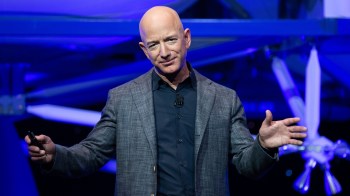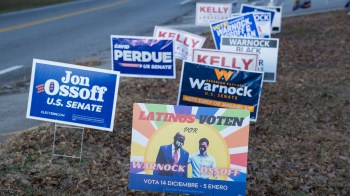TEXT OF COMMENTARY
SCOTT JAGOW: This week, the Senate’s looking at repealing the estate tax. The House has already voted to get rid of it. In this edition of The Public’s Business, commentator Robert Reich says, this is a bad move for the economy.
ROBERT REICH: The earnings of nearly everyone used to rise with rising productivity. That’s no longer true. Today’s workers are 24 percent more productive than they were five years ago, but their median real earnings have barely budged.
What’s happened to all this extra value? A big chunk has gone to people earning over a million dollars a year, mostly CEOs, investment bankers and hedge fund managers. This past year, 25 hedge fund managers each took home at least $130 million. Henry Paulson, our about-to-be Treasury Secretary, pocketed over $30 million. Average CEO pay back in 1966 was 60 times that of the typical American worker. Now it’s 400 times.
Wealth is even more lopsided than income. Henry Paulson’s net worth of more than $700 million doesn’t even earn him a place among Forbes richest 400 Americans.
What does this mean for the nation? Thirty years ago, the richest 1 percent owned less than a fifth of America’s wealth. Now, according to recent report by the Fed Reserve Board, they own over a third. Not since the days of the Robber Barons of the 19th Century have we seen this much wealth concentrated in so few hands.
Super-rich couples can now pass on $4 million to their heirs tax free. Anything over $4 million is taxed at a 45 percent rate. So why, exactly, is it so important to repeal the estate tax altogether? Repeal will cost the Treasury nearly a trillion dollars in its first 10 years – more than the entire shortfall in Social Security. That means more federal debt or higher taxes on the middle class.
Those who argue for repeal say the estate tax discourages entrepreneurs. What? Passing on $4 million tax free to your kids is not enough incentive?
Talk about discouraging entrepreneurship. Repeal the estate tax and within a few decades control over America’s productive assets will be in the hands of non-productive Americans who never lifted a finger in their lives except to speed-dial their financial advisors.
People who inherit great wealth just because they’re lucky enough to have super-rich parents don’t have any particular incentive to be entrepreneurial. They don’t have any particular incentive to do anything. That’s who we want running the American economy?
According to a new report from United for a Fair Economy, 18 families worth a total of $185 billion have financed and coordinated the repeal campaign. If they succeed, they’ll net $71 billion. That’s what they call entrepreneurship.
Robert Reich teaches public policy at the University of California at Berkeley. He was labor secretary under President Clinton.
There’s a lot happening in the world. Through it all, Marketplace is here for you.
You rely on Marketplace to break down the world’s events and tell you how it affects you in a fact-based, approachable way. We rely on your financial support to keep making that possible.
Your donation today powers the independent journalism that you rely on. For just $5/month, you can help sustain Marketplace so we can keep reporting on the things that matter to you.


















